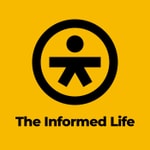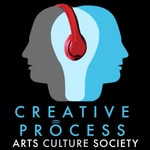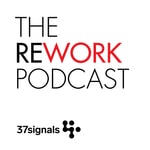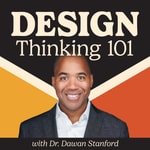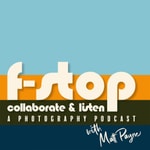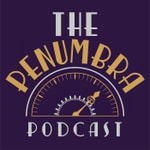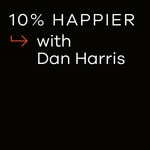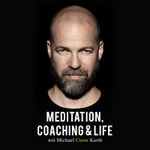Jewish Ideas to Change the World – Détails, épisodes et analyse
Détails du podcast
Informations techniques et générales issues du flux RSS du podcast.

Jewish Ideas to Change the World
Valley Beit Midrash
Fréquence : 1 épisode/4j. Total Éps: 967

Classements récents
Dernières positions dans les classements Apple Podcasts et Spotify.
Apple Podcasts
🇨🇦 Canada - judaism
31/07/2025#85🇨🇦 Canada - judaism
30/07/2025#67🇨🇦 Canada - judaism
29/07/2025#42🇺🇸 États-Unis - judaism
29/07/2025#91🇨🇦 Canada - judaism
28/07/2025#28🇨🇦 Canada - judaism
27/07/2025#16🇨🇦 Canada - judaism
26/07/2025#13🇨🇦 Canada - judaism
21/07/2025#81🇨🇦 Canada - judaism
20/07/2025#85🇨🇦 Canada - judaism
09/07/2025#98
Spotify
Aucun classement récent disponible
Liens partagés entre épisodes et podcasts
Liens présents dans les descriptions d'épisodes et autres podcasts les utilisant également.
See all- https://www.valleybeitmidrash.org/donate
1814 partages
- https://www.valleybeitmidrash.org
469 partages
- https://www.facebook.com/ValleyBeitMidrash
605 partages
- https://www.facebook.com/RabbiShmulyYanklowitz
475 partages
- https://www.facebook.com/valleybeitmidrash
227 partages
Qualité et score du flux RSS
Évaluation technique de la qualité et de la structure du flux RSS.
See allScore global : 53%
Historique des publications
Répartition mensuelle des publications d'épisodes au fil des années.
Was the Apostle Paul a Jewish Thinker?
Épisode 908
mercredi 4 septembre 2024 • Durée 01:01:54
A virtual event presentation by Dr. Elias Sacks
The event was co-sponsored by BMH-BJ
About The Event:
For centuries, it has been common for Jews to tell the following story about ancient Jewish and Christian history: while Jesus was a Jew who never intended to break from Judaism, one of his followers, the apostle Paul, was born Jewish but had a conversion experience, abandoned Judaism, and created a new religion known as Christianity. However, in recent decades, a wide range of Jewish thinkers, Christian theologians, and academic historians have challenged this narrative, insisting that Paul was a profoundly Jewish figure who never meant to leave Judaism—and one who offered a vision of Jewish life that is strikingly relevant to contemporary conversations about religion, ethics, and politics. In this session, we will explore these issues, wrestling with questions such as: What did Paul think about Judaism? How did Paul fit into the ancient Jewish world? And what—if anything—do his writings offer twenty-first-century Jews?
*Source Sheet: https://drive.google.com/file/d/1Z1uI0ZRwbYJXQ8uZsVMHSYOeP0G36jDc/view
About The Speaker:
Elias Sacks is an Associate Professor of Religious Studies and Jewish Studies at the University of Colorado Boulder, where he studies Jewish thought, philosophy of religion, Jewish-Christian relations, religious ethics, and religion and politics. He is the author of Moses Mendelssohn’s Living Script: Philosophy, Practice, History, Judaism (2017), as well as articles on medieval and modern thinkers including Mendelssohn, Moses Maimonides, Baruch Spinoza, Nachman Krochmal, Hermann Cohen, Franz Rosenzweig, and Jacob Taubes. Previously, Sacks served as Director of The Jewish Publication Society.
★ Support this podcast ★"It Takes Two to Torah": A Book Interview with Rabbi Dov Linzer & His Co-Author Abigail Pogrebin
Épisode 907
lundi 26 août 2024 • Durée 26:50
Rabbi Dr. Shmuly Yanklowitz interviews Rabbi Dov Linzer & his Co-Author Abigail Pogrebin about their new book together "It Takes Two to Torah" published by Fig Tree Books. Their book discusses 52 weekly readings of the Torah in this adaptation of their Parsha in Progress podcast.
Rabbi Linzer studied for many years at Yeshivat Har Etzion, was a member of Yeshiva University’s Gruss Kollel Elyon, and received his ordination from the Israeli Rabbinate. He is a recipient of the Javits Graduate fellowship and a doctoral candidate in Religion at Columbia University. Rabbi Linzer headed the Boca Raton Kollel for the first two-and-a-half years of its existence, giving classes to the rabbis of the Kollel, and lecturing throughout the South Florida communities. He has published Halakha and machshava articles in Torah journals and lectures widely at synagogues and conferences on topics relating to Halakha, Orthodoxy, and modernity. Rabbi Linzer spearheaded the development of the YCT Rabbinical School curriculum into an innovative four-year semikha program. In addition to overseeing the Yeshiva’s Torah curriculum, he teaches advanced Halakha in a broad range of areas across all four sections of the Shulchan Aruch. Rabbi Linzer teaches advanced classes in Talmud and a year-long class in Contemporary Challenges of Modern Orthodoxy.
*Jewish Learning Center of New York *
Abigail Pogrebin is the author of My Jewish Year: 18 Holidays; One Wondering Jew, which was a finalist for the 2018 National Jewish Book Award. She is also the author of Stars of David: Prominent Jews Talk about Being Jewish, for which Abigail interviewed 62 famous American Jews — from Ruth Bader Ginsburg to Steven Spielberg — about their religious identity. Her book, One and the Same delved into every aspect of growing up as a twin — of which Abby is one. (The identical kind.) Her bestselling Kindle Single, Showstopper, chronicled her teenage adventures on Broadway in a rare Sondheim flop. She was an Emmy-nominated producer for Mike Wallace at 60 Minutes, and before that produced for Bill Moyers on PBS. She has moderated conversations at The Streicker Center, The JCC in Manhattan, the UJA Federation, and the Shalom Hartman Institute. Tablet Magazine’s podcast, “Parsha in Progress” features a regular Torah discussion with Abigail and Rabbi Dov Linzer (President of Yeshivat Chovevei Torah). Abby received the “Impact Award” from the JCC in Manhattan, and the “Community Leader Award” from The Jewish Week in 2017. She served as President of Central Synagogue from 2015-18 and was Director of Jewish Outreach for Michael Bloomberg’s 2020 presidential campaign.
*Abigail Pogrebin website*
The Great (Non-Jewish) Kings of Jewish History: (Cyrus, Alexander, and Julian)
Épisode 898
mercredi 24 juillet 2024 • Durée 01:06:08
A hybrid event (in-person and virtual) by Rabbi Marc Gitler
The event was co-sponsored by BMH-BJ
About the Event:
As a small people, Jews have always been at the whim of larger empires. We know of the kings who oppressed our people, so let’s spend time familiarizing ourselves with kings who restored our people’s fortunes.
*Source Sheet: https://docs.google.com/document/d/14dBke91wnSdl5WfWkl6cRY7Z0Op4UtGZ/edit
About the Speaker:
Marc Gitler serves as the Senior Jewish Educator for Valley Beit Midrash and is the visiting Rabbi of Aish San Diego. A recipient of the Wexner Fellowship, he was ordained at Yeshivat Chovevei Torah. The founder of Fast for Feast, he lives in Denver, Colorado with his wife Sarah and their four children.
★ Support this podcast ★Is Territory Sacred? Unexpected Kabbalistic Teachings for an Age of Religious Conflict
Épisode 808
lundi 19 juin 2023 • Durée 01:07:24
A virtual event presentation by Dr. Nathaniel Berman
The event was co-hosted by Hebrew Educational Alliance
About the Event:
What can kabbalistic teachings contribute to a world in which rival claims to sacred land continue to cause such suffering? It is true that some kabbalistic teachings make such conflicts worse – bestowing specific sites with absolute value, making compromise impossible. Other kabbalistic teachings, however, insist that we look for true sacredness in unexpected places – strange lands, remote villages, barren deserts – rather than in official holy sites. These teachings embody the deepest kabbalistic imperative: to seek out the holiest in the most profane, whether in the world or in our own souls. We can trace the roots of such teachings too often neglected strands of biblical texts and we can see them flourishing in the writings of key Hasidic sages.
About the Speaker:
Nathaniel Berman is the Rahel Varnhagen Professor in Brown University’s Department of Religious Studies. He is the author of Passion and Ambivalence: Colonialism, Nationalism, and International Law (Brill 2011) and Divine and Demonic in the Poetic Mythology of the Zohar: the ‘Other Side’ of Kabbalah (Brill 2018).
★ Support this podcast ★Practicing Judaism in the 21st Century: Rereading the Torah as a Spiritual Handbook - Class #2
Épisode 807
vendredi 16 juin 2023 • Durée 01:05:15
A virtual, six-part series presented by Rabbi Dr. Darren Kleinberg
About the Event:
In this mini-course, we welcome back Valley Beit Midrash founder, Rabbi Darren Kleinberg, for a new encounter with the Torah. Commonly understood as a book of laws and stories, Rabbi Kleinberg will unlock new ways of reading through the words of Judaism’s foundational sacred text to unlock practices that can be incorporated into our daily lives to increase insight and well-being.
About the Speaker:
Rabbi Darren Kleinberg, Ph.D., is a Senior Fellow with the Concentration in Education and Jewish Studies at the Stanford Graduate School of Education. In partnership with a group of visionary community leaders, Rabbi Kleinberg became the Founding Executive Director of Valley Beit Midrash in 2007.
★ Support this podcast ★Rav Kook’s Universalism
Épisode 806
mardi 13 juin 2023 • Durée 54:22
A virtual event presentation by Rabbi Bezalel Naor
The event was co-hosted by Beth El
About the Event:
Rav Abraham Isaac Kook (1865-1935) was a highly complex individual: legalist and philosopher, mystic and poet. In his role as Chief Rabbi of Eretz Israel (1921-1935), he emerged as a leader of world Jewry. Since his passing, Rav Kook’s literary legacy has exercised generations of scholars and thinkers (such as Rabbis J.B Soloveitchik, Isaac Hutner, and Jonathan Sacks, to name a few). That legacy, which contains elements of nationalism and universalism, continues to baffle his admirers and detractors. In this class, we will glimpse Rav Kook’s spiritual renaissance and his vision of humanity’s evolving consciousness.
About the Speaker:
Bezalel Naor is the author of many works of Jewish thought in English and Hebrew – philosophy, Kabbalah, and Hasidism – with a major concentration on the writings of the great Seer of Israel, Rav Kook. He is also the translator of Orot, Rav Kook’s seminal work.
Naor’s published books include: Navigating Worlds: Collected Essays Vols. 1 & 2 (2021), The Legends of Rabbah bar Bar Hannah (2019), The Koren Rav Kook Siddur (2017), When God Becomes History: Historical Essays of Rav Kook (2016), Mahol la-Tzaddikim; The Controversy between Rabbi Moshe Hayyim Luzzatto and Rabbi Eizik Epstein of Homel Concerning the Divine Design in Creation (2015), Kana’uteh de Pinhas (2013), an analysis of the critique of Leshem Shevo ve-Ahlamah, The Kabbalah of Relation (2012), and The Limit of Intellectual Freedom: Letters of Rav Kook (2011).
★ Support this podcast ★Practicing Judaism in the 21st Century: Rereading the Torah as a Spiritual Handbook - Class #1
Épisode 805
lundi 12 juin 2023 • Durée 46:51
A virtual, six-part series presented by Rabbi Dr. Darren Kleinberg
About the Event:
In this mini-course, we welcome back Valley Beit Midrash founder, Rabbi Darren Kleinberg, for a new encounter with the Torah. Commonly understood as a book of laws and stories, Rabbi Kleinberg will unlock new ways of reading through the words of Judaism’s foundational sacred text to unlock practices that can be incorporated into our daily lives to increase insight and well-being.
About the Speaker:
Rabbi Darren Kleinberg, Ph.D., is a Senior Fellow with the Concentration in Education and Jewish Studies at the Stanford Graduate School of Education. In partnership with a group of visionary community leaders, Rabbi Kleinberg became the Founding Executive Director of Valley Beit Midrash in 2007.
★ Support this podcast ★Tov! — What I’ve Learned About Jewish Ethics By Studying The Good Place
Épisode 804
mercredi 7 juin 2023 • Durée 43:49
A virtual event presentation by Rabbi Jonathan Spira-Savett
The event was co-sponsored by Congregation Or Tzion & BMH-BJ
About The Event:
One of the most nuanced recent explorations of teshuvah is a television show that has been described as “the smartest, dumbest show on TV.” The Good Place follows four human beings whom we meet in a “neighborhood” of the afterlife supervised by two eternal beings. (This description will try not to spoil the show for those who haven’t watched it, but the session will definitely have spoilers!) One of the humans is a professor of ethical philosophy, and another quickly reveals to him that she has been sent there by mistake. Together, they get to work keeping her from being expelled to the “bad place”, by studying ethics and applying the concepts to working on her character. In the course of four seasons, the show explicitly teaches concepts in ethical philosophy and portrays their application to moral self-improvement. There is almost no specific religious reference in the show, beyond the gestures to “heaven” and “hell.” But what has intrigued Jewish educators are moves that seem like midrashim on teshuvah in a Maimonidean sense and on the book of Esther, and echoes of many core Jewish ethical concepts. The Tov! podcast began with the idea of just juxtaposing each episode’s theme against Jewish teaching — hardly a sophisticated educational methodology. But the further we went, the more alive certain texts become for me, particularly those about teshuvah. And the more I have been surprised at realizations about the moral significance of things like time, friendship, and theology. In the session, we’ll watch and hear some tastes from the TV show and the podcast along with my own story, and hopefully, you’ll be intrigued to watch the show on your own, or re-watch it with a new lens!
About the Speaker:
Jon Spira–Savett has served for nearly fifteen years as rabbi of Temple Beth Abraham in Nashua, New Hampshire, and is co-host of Tov! A Podcast About “The Good Place” and Jewish Ideas Jon has taught social ethics, bioethics, and environmental ethics in Jewish day schools, supplementary programs, teen philanthropy projects, and wider community adult education projects, and he serves on the ethics committee of Southern New Hampshire Medical Center in Nashua. Jon’s general writings and recordings about Torah and current events are on his blog at rabbijon.net. He is the immediate past president of the Nashua Area Interfaith Council, co-convener of the Greater Nashua Housing Justice Group, and co-founder of “How To Be President”, an initiative to transform how we learn about candidates by asking better questions. Jon was ordained and received his M.A. in Jewish education from the Jewish Theological Seminary of America, and is an active alum of the Wexner Graduate Fellowship. He did his undergraduate studies at Harvard College. Jon grew up in St. Paul, Minnesota, and is a proud alum of the Talmud Torah of St. Paul, to which he owes his interest in ethical philosophy, text study, and Hebrew language. To find more information about Jon and his podcast you can go to his website at tovgoodplace.com
★ Support this podcast ★The Prayer Book
Épisode 803
lundi 22 mai 2023 • Durée 59:06
A virtual event presentation by Dr. Jonnie Schnytzer
The event was co-sponsored by Congregation Or Tzion
About the Event:
The words of the Jewish prayer may be described as a confluence of the most personal of moments and the story of an entire nation. Diving into its pages we will learn of moments of faith and fears, moments of indescribable ecstasy and sheer suffering – moments that created prayer. Leafing together through its pages, we will come to discover, not only historic moments which led to canonized prayer but also, what our inner prayer book might look like as well.
About the Speaker:
Jonnie Schnytzer is probably the only Ph.D. in Jewish Philosophy, focusing on medieval kabbalah, who can say that he once beat the head of Israeli Naval Commandos in a swimming race? His dissertation focused on the scientific kabbalah of Rabbi Joseph ben Shalom Ashkenazi. Jonnie’s forthcoming book is about Ashkenazi’s Kabbalah as well as a critical edition of the Kabbalist’s majestic commentary on Sefer Yesira. Jonnie’s also the author of Mossad's thriller, The Way Back, which paints a picture of contemporary Israel. Jonnie also orchestrated the publishing of an English edition of ‘The Hitler Haggadah’, an important piece of Moroccan Jewish history from the Holocaust. Jonnie has also taken on several leadership roles in the Jewish world, including advisor to the CEO of Birthright and executive manager with StandWithUs. He lectures on a wide variety of topics relating to Judaism and Israel, especially about the untold stories and unspoken heroes of Jewish history.
Jonnie is happily married, with four gorgeous little kids, lives in Israel, and thinks that Australian Rules Football is the greatest sport ever invented.
★ Support this podcast ★Pluralism, Democracy & Israeli Protests: An Interview with Rabbi Dr. Donniel Hartman
Épisode 802
vendredi 19 mai 2023 • Durée 14:42
Rabbi Dr. Shmuly Yanklowitz (President and Dean of Valley Beit Midrash) interviews Rabbi Dr. Donniel Hartman
.
.
.
Rabbi Dr. Donniel Hartman is president of the Shalom Hartman Institute and holds the Kaufman Family Chair in Jewish Philosophy. He is the author of the highly regarded 2016 book, Putting God Second: How to Save Religion from Itself, and is the host of “For Heaven’s Sake,” one of the most popular Jewish podcasts in North America.
Donniel is the founder of some of the most extensive education, training, and enrichment programs for scholars, educators, rabbis, and religious and lay leaders in Israel and North America. He is a prominent essayist, blogger, and lecturer on issues of Israeli politics, policy, Judaism, and the Jewish community.
He has a Ph.D. in Jewish philosophy from Hebrew University, an M.A. in political philosophy from New York University, an M.A. in religion from Temple University, and a Rabbinic ordination from the Shalom Hartman Institute. Is the author of The Boundaries of Judaism, co-author of Spheres of Jewish Identity, and co-editor of Judaism and the Challenges of Modern Life. His new book entitled Who Are The Jews and Who We Can Become, will be published by JPS in the fall of 2023.
He is married to Adina and is the father of three children and five grandchildren.
★ Support this podcast ★